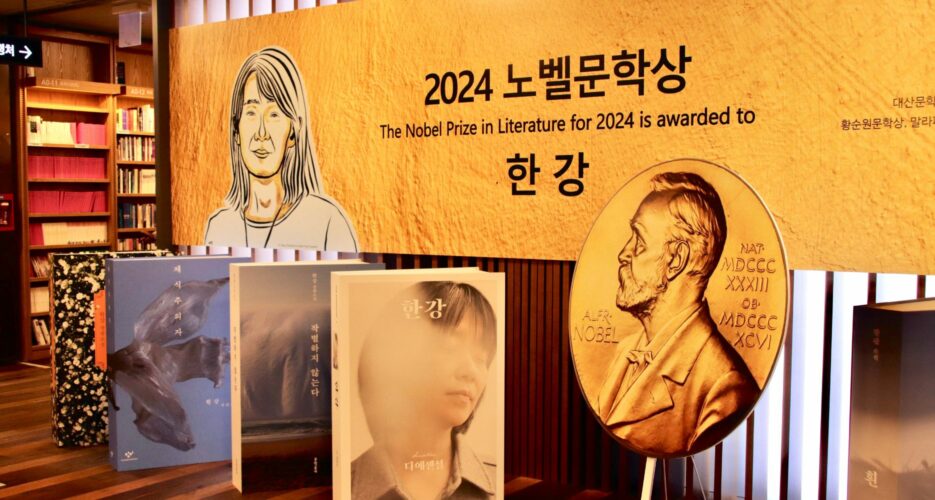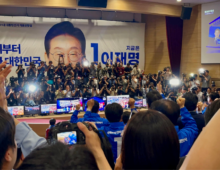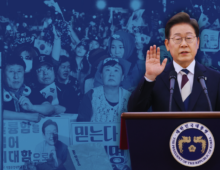|
Analysis Unsung heroes of Korean literature demand more support and recognitionTranslators face financial challenges and policy shifts despite playing a key role in promoting Korean voices abroad Joon Ha ParkOctober 17, 2024  A display celebrating Han Kang, the winner of the Nobel Prize in Literature for 2024 at a bookstore in Seoul | Image: Korea Pro (Oct. 17, 2024) With Han Kang’s Nobel Prize in Literature, the global spotlight on the industry has intensified. However, beneath this celebration lies a complex, underfunded world of literary translation that threatens to undermine the reach of Korean voices. MORE THAN JUST WORDS Kim Heon-sik, a pop culture critic, told Korea Pro that Korean literary translation has evolved through three distinct phases. “Initially, native Korean speakers were the primary translators,” Kim explained. These translators, deeply rooted in Korean culture, laid the foundation for the global reception of Korean literature. Over time, translation duties shifted to the Korean diaspora — individuals more fluent in the target language but still connected to their cultural heritage. In recent years, Kim noted that figures like Deborah Smith, native speakers of the target language who have immersed themselves in Korean studies, have elevated the translation process to new linguistic heights. Yoon Sun-me, a professor at the Literature Translation Institute (LTI) of Korea, who has translated several of Han Kang’s works into Spanish, told Korea Pro that translating Han’s intricate prose presents unique challenges. “Han Kang’s writing is deeply poetic,” Yoon explained, emphasizing the difficulty in preserving that lyrical quality while ensuring accessibility for foreign readers. Yoon also stressed that translating literature is not a simple task of substituting words. “It’s a deeply creative act involving interpretation of the author’s meaning and intent,” she said. In her experience, translators often have to decipher what the author implies rather than what they explicitly state. For example, an author might write one thing but mean something else entirely, and that can often depend on cultural or emotional context. “The translator has to make careful decisions to preserve the deeper layers of meaning while ensuring the text flows in the target language,” Yoon said. The translation process begins with capturing the essence of the original text, followed by multiple rounds of revision and polishing. Yoon compared this stage to choreography, ensuring sentences flow naturally without jarring interruptions. Translators also work to integrate distinctly Korean elements in a way that aids foreign readers’ understanding without feeling forced. “Literary translation is often as laborious as writing the original work itself. In many ways, it is more akin to re-creation than simple linguistic conversion,” Yoon emphasized.  An array of English language Korean fiction books on display at a bookstore in Seoul | Image: Korea Pro (Oct. 17, 2024) A LACK OF SUPPORT Despite the enormous effort involved, experts warn that South Korea’s support for literary translators remains sorely inadequate. According to data obtained by Korea Pro from Democratic Party lawmaker Kang Yu-jung’s office, the budget for LTI Korea’s translation and publishing support program has stagnated. From 2019 to 2023, funding hovered around $1.3 million (1.8 billion won) each year, with a modest increase to $1.46 million (2 billion won) for 2024. “The translation budget has barely grown over the years,” pop culture critic Kim told Korea Pro, warning that the lack of substantial investment is troubling given the surging demand for Korean literature overseas. International publishers are eager to publish translated works from South Korea, but limited financial backing hampers the industry’s ability to meet that demand.  An array of English language Korean fiction books on display at a bookstore in Seoul | Image: Korea Pro (Oct. 17, 2024) Kim also highlighted inadequate compensation for translators as a pressing issue. “Translation fees in Korea are notoriously low,” he said. “It’s almost impossible to sustain a full-time career as a literary translator.” The lack of financial support creates a precarious situation for translators, who are essential to the cultural export of Korean literature. Most translators in Korea rely on limited opportunities for stable income, primarily through government-linked entities like LTI Korea or private foundations. However, these avenues fall short, and recent policy shifts may further narrow support for translators. LTI Korea, which previously allowed translators to apply for grants directly, now restricts funding to applications from foreign publishers, leaving many translators unable to access crucial resources. “The system now overlooks valuable literary works that translators believe deserve global attention,” Yoon of LTI Korea told Korea Pro. “It’s forcing us to rely on foreign publishers’ interests, which often skew toward commercial genres.” This shift has led to a growing emphasis on marketable genres such as fantasy, thrillers and “feel-good” literature, often at the expense of literary diversity. Yoon also noted that while translators act as cultural ambassadors, scouts and even agents for Korean authors, much of their work remains unrecognized. “As translators, we have to wear many hats,” she said. “We compete for funding, manage the quality of the translation and even handle promotion and media outreach. Without translators championing these works, many significant Korean authors would likely remain unknown outside the country.”  Han Kang’s novels on display at a bookstore in Seoul | Image: Korea Pro (Oct. 17, 2024) CULTURAL ENVOYS The success of Han Kang’s The Vegetarian is a prime example of how diligent translators can elevate Korean literature internationally. However, for Korean literature to gain sustained global traction, greater financial backing, autonomy and recognition for translators are crucial. For over 15 years, LTI Korea’s Translation Academy has served as a training ground for aspiring translators, with 90% of its student body comprising foreign nationals. The academy offers an intensive, fully funded two-year program that covers tuition and living expenses. However, the program faces significant challenges due to its non-degree status, which has far-reaching consequences, from difficulties in securing high-caliber faculty to the inability to facilitate academic credit exchanges with foreign universities. Most critically, it leaves graduates without a formally recognized degree, severely hampering their professional prospects upon returning to their home countries. To address these shortcomings, Democratic Party lawmaker Kim Yun-duk has proposed an amendment to the Literature Promotion Act, which would establish a graduate school within LTI Korea, allowing it to confer recognized degrees. The proposed graduate school would maintain a focus on international students, aiming for an 80% foreign to 20% Korean student ratio. This would leverage the advantages of native speakers translating into their mother tongues, a method that has proven successful with award-winning translations like Han Kang’s works.  A man looks at a display celebrating Han Kang, the winner of the Nobel Prize in Literature for 2024 at a bookstore in Seoul | Image: Korea Pro (Oct. 17, 2024) IMPROVING THE SYSTEM Establishing a degree-granting graduate school at LTI Korea is just one step toward better supporting literary translators. Pop-culture critic Kim argued that government funding needs a significant boost and that private institutions should also contribute by offering more translation prizes, grants and long-term initiatives. “We need consistent opportunities for translators to stay in the game,” he said. Yoon of LTI echoed these sentiments, calling for a balance between supporting the books that foreign publishers want and allowing translators greater autonomy to bring important but overlooked works to the global stage. “Translators are more familiar with Korean literature because we have read and studied it extensively. So, we understand what deserves attention,” she said. “Giving us more say in the selection process could open doors to a wider range of Korean stories abroad.” Edited by John Lee With Han Kang’s Nobel Prize in Literature, the global spotlight on the industry has intensified. However, beneath this celebration lies a complex, underfunded world of literary translation that threatens to undermine the reach of Korean voices. MORE THAN JUST WORDS Get your
|
|
Analysis Unsung heroes of Korean literature demand more support and recognitionTranslators face financial challenges and policy shifts despite playing a key role in promoting Korean voices abroad  With Han Kang’s Nobel Prize in Literature, the global spotlight on the industry has intensified. However, beneath this celebration lies a complex, underfunded world of literary translation that threatens to undermine the reach of Korean voices. MORE THAN JUST WORDS © Korea Risk Group. All rights reserved. |











